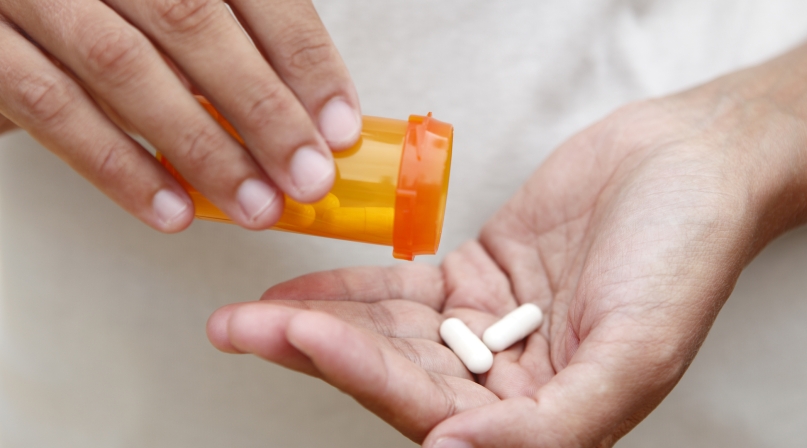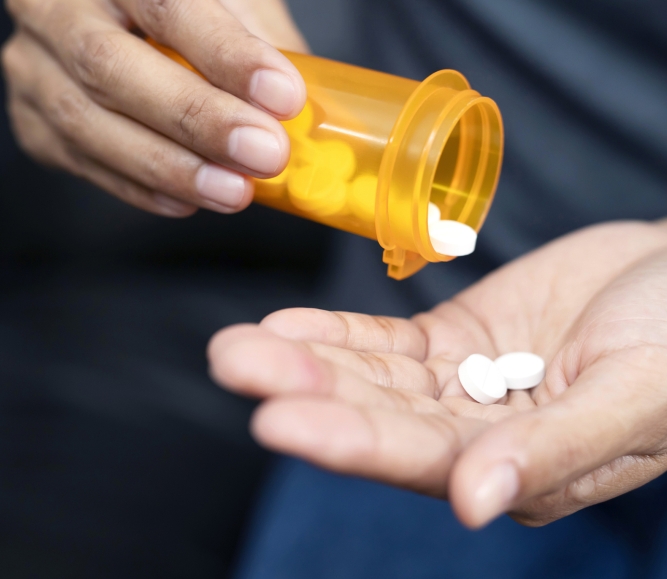Congress passes SUPPORT Act reauthorization
Author

Blaire Bryant

Naomi Freel
Upcoming Events
Related News

Key Takeaways
DECEMBER 3, 2025 UPDATE: On December 1, the bipartisan SUPPORT for Patients and Communities (SUPPORT) Reauthorization Act of 2025 (H.R. 2483) was signed into law. The reauthorization renews vital federal funding for programs that seek to prevent opioid overdoses and expand treatment and recovery options. To learn more about this legislation, read NACo's analysis here.
SEPTEMBER 19, 2025 UPDATE: On September 18, the U.S. Senate passed the SUPPORT for Patients and Communities Reauthorization Act of 2025 (SUPPORT Act Reauthorization) (H.R. 2483) by voice vote, following House passage earlier this year. With strong bipartisan backing in both chambers, the legislation now heads to the President’s desk for signature.
The SUPPORT Act Reauthorization renews billions of dollars in federal funding for programs aimed at preventing overdoses and strengthening treatment and recovery services. Its passage represents a major win for counties, which are on the frontlines of the nation’s behavioral health system. NACo has been a strong proponent of this legislation since its introduction, advocating for the vital resources it provides to help counties address the nation’s ongoing behavioral health crisis. NACo is currently preparing a more in-depth analysis of the bill’s provisions.
JUNE 5, 2025 UPDATE: On June 4, the U.S. House of Representatives passed the SUPPORT for Patients and Communities Reauthorization Act of 2025 (H.R. 2483) by a strong bipartisan vote of 366–57. The bill, which reauthorizes billions of dollars for critical programs that target overdose prevention, now heads to the Senate Committee on Health, Education, Labor and Pensions, where a version of the bill was overwhelmingly advanced with bipartisan support in the 118th Congress. NACo strongly supports the bill and will continue working to ensure its final passage in the Senate.
On April 9, the U.S. House Energy and Commerce Committee marked up the SUPPORT for Patients and Communities Reauthorization Act of 2025 (H.R. 2483). The bipartisan bill aims to reauthorize critical programs that target overdose prevention amid the renewal of the opioid crisis Public Health Emergency declaration. In the Senate, these reauthorizations were incorporated into a larger bipartisan package, the Bipartisan Health Care Act (S.891).
What is the SUPPORT Act
In 2018, Congress passed the Substance-Use Disorder Prevention that Promotes Opioid Recovery and Treatment for Patients and Communities (SUPPORT) Act (P.L. 115-271). This comprehensive legislative package was the largest Congressional investment in overdose prevention at the time and was aimed to strengthen the country's response to the ongoing substance use crisis.
In September 2023, many policy provisions in the original package expired, requiring congressional reauthorization to continue these critical programs among a worsening overdose crisis. The House and Senate each have their own versions of the reauthorization bill, but legislation generally:
- Funds residential treatment recovery services for pregnant and postpartum women with substance use disorders (SUD)
- Renews funding for prevention, treatment and recovery programs
- Supports training programs for first responders and community members to reverse overdoses
- Bolsters the SUD workforce by offering loan repayment programs
- Funds grants for community-based recovery and youth prevention efforts
- Establishes a national peer-run training and technical assistance center
- Requires expanded data collection on SUD and mental health services
- Extends DEA flexibilities for telehealth prescribing of Medication for Opioid Use Disorder (MOUD)
County impacts
Counties are the backbone of our nation’s mental and behavioral health service system, administering treatment, recovery and support services through nearly 750 behavioral health authorities and over $80 billion in community health investments. The reauthorization of the SUPPORT Act will offer continued support to counties in their ongoing efforts to respond effectively to the ongoing behavioral health crisis as it contains several key funding streams to help support community-based SUD-related treatment and recovery, as well as resources to bolster the behavioral health workforce.
Advocacy
HHS renews Public Health Emergency Declaration to address national opioid crisis
On March 18, the U.S. Department of Health and Human Services (HHS), under the direction of Secretary Robert F. Kennedy, Jr. renewed the public health emergency (PHE) declaration to address the ongoing opioid crisis, extending critical federal support for coordination, treatment expansion and research efforts. While overdose deaths have declined by 25.5 percent over the past year, synthetic opioids like fentanyl continue to drive fatalities, with approximately 150 Americans dying daily from overdoses.

Related News

HHS Secretary Kennedy touts fixes for obesity, chronic illness, mental health issues
Counties can help improve health outcomes by prioritizing prevention over treatment, Robert F. Kennedy Jr., secretary of the U.S. Department of Health and Human Services told NACo Legislative Conference attendees.

Drug tracking software helps counties identify trends, save lives
Florida counties are using an artificial intelligence tool called Drug TRAC to track and report drug trends, with the aim of providing quicker outreach and saving lives.

White House Executive Order establishes national substance use disorder response
On January 29, the White House issued an Executive Order (EO) establishing the Great American Recovery Initiative, a new federal effort aimed at coordinating a national response to substance use disorder (SUD).